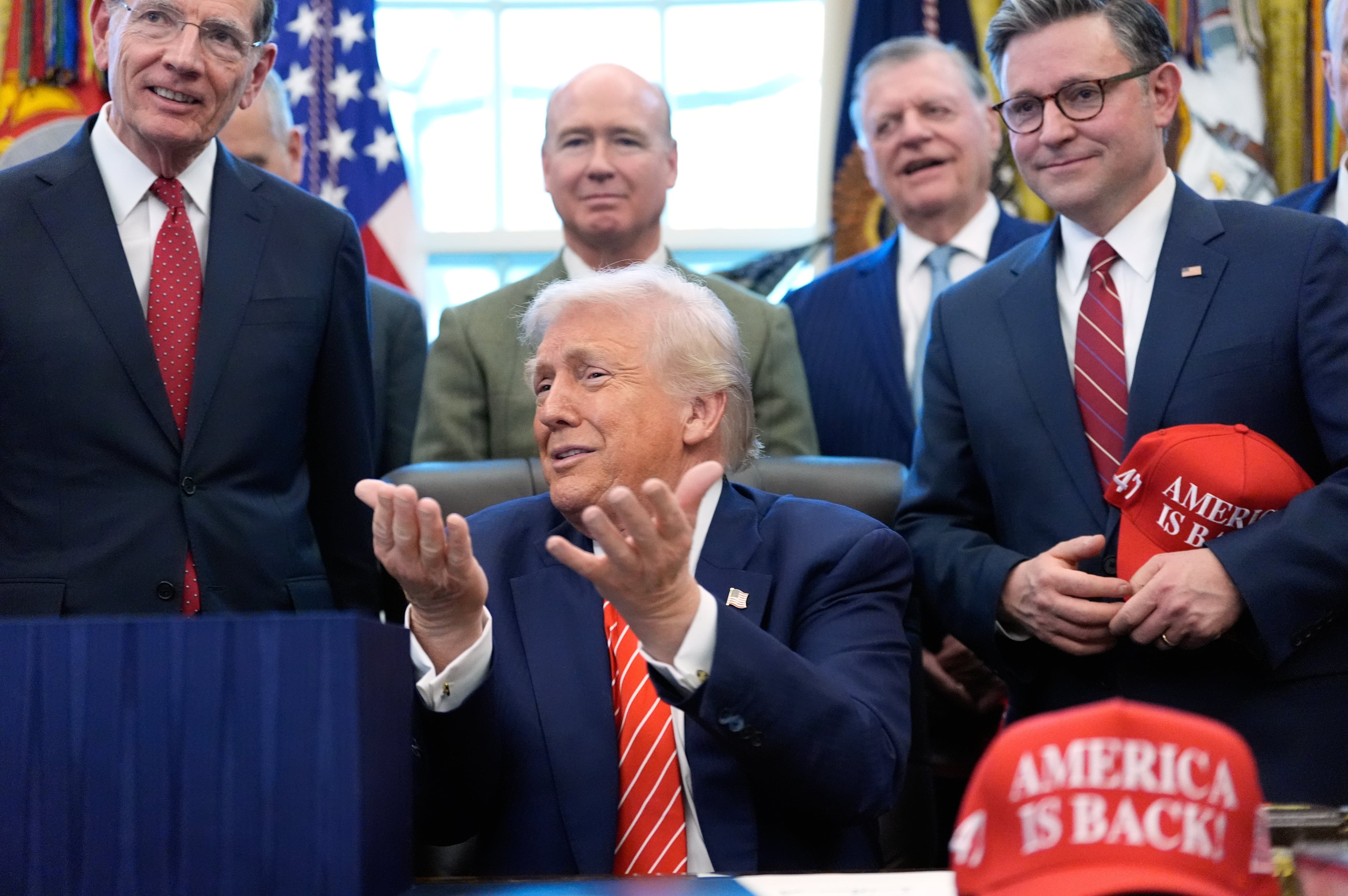Rep. Clyde breaks with Georgia delegation on Kemp’s disaster aid request

WASHINGTON — Every member of Georgia’s congressional delegation except one, U.S. Rep. Andrew Clyde, is backing Gov. Brian Kemp’s request for $12 billion in disaster funding.
Lawmakers say the money is needed to help businesses and families in the state hit hard by Hurricane Helene. But Clyde decided not to join them, in part because he wants budget cuts to offset any disaster relief.
Clyde, R-Athens, couldn’t be reached for comment. But his office said he supports the House Freedom Caucus statement that encourages lawmakers to reject President Joe Biden’s $100 billion disaster aid request.
“The House should consider only what is absolutely necessary right now to provide critical relief to hurricane victims and farmers and pay for it with offsets from wasteful spending elsewhere in the government, then wait for President (Donald) Trump to take office to better manage disaster relief,” the statement said.
The remaining 15 members of Georgia’s delegation, including lawmakers from both parties, are pushing to get the aid approved before the current session of Congress ends in two weeks. In a letter to the top Republican and Democrat on the Appropriations Committee in each chamber, they said they are in full support of Kemp’s request and hope for quick approval.
“To date, the Federal Emergency Management Agency has provided over $243 million in individual and household assistance to Georgians in need and continues to operate numerous disaster recovery and assistance centers across the state,” the letter says. “We applaud the public servants and community leaders who have helped Georgia along its first steps toward recovery, but we know that more needs to be done, especially for our farmers and rural communities.”
Among the signers is U.S. Rep. Buddy Carter, R-St. Simons Island. He has spoken in the past about the need to reduce government spending and cut the deficit, but he said these discussions should not be coupled with the debate over emergency aid to help people impacted by recent natural disasters.
He noted that previous disaster relief packages have not been offset by cuts elsewhere, known as “pay-fors,” and he doesn’t think it should start now.
“I’m as fiscally conservative as anyone else, but now is not the time for us to start with having to have pay-fors for disaster,” Carter said. “Our people need help, and they need it yesterday.”
Clyde’s office said he supports disaster relief dollars coming to Georgia and is declining to say whether he would vote “no” on a bill if it comes to the floor without offsetting cuts elsewhere in the budget because he is waiting to see what is proposed.
The discussion on disaster relief will unfold in tandem with debate on how to fund the federal government beyond Dec. 20, when current Congress’ spending authorization expires. Congress is expected to approve a government funding package that extends the shutdown deadline to shortly after Trump takes office, possibly mid-March.



